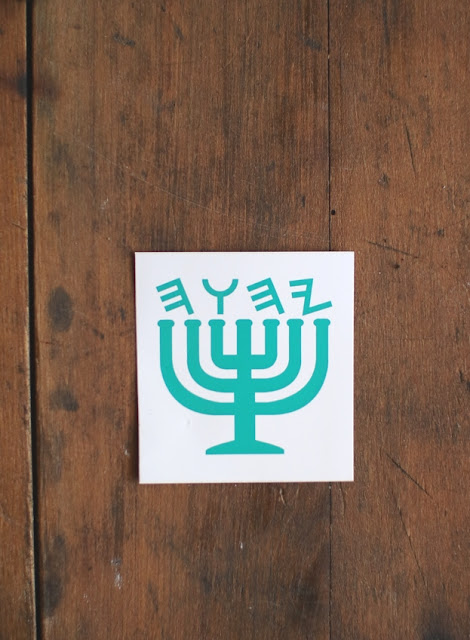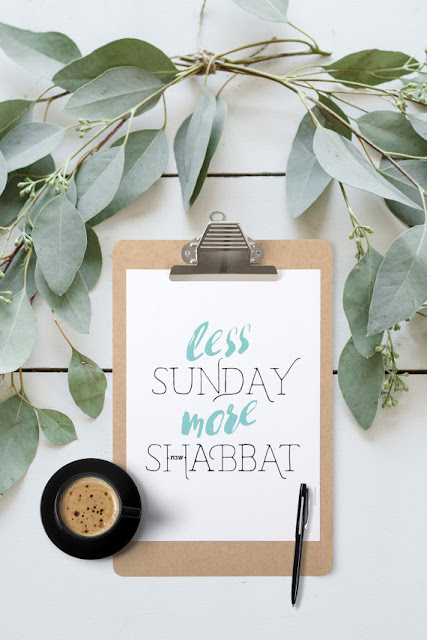Today we are taking a look at the Biblical definition of the word 'Hebrew.' While Hebrew is a language, it is also a word that is often used to describe God's people in general, and specific individuals in Scripture. We are also familiar with the New Testament book of Hebrews. When we see the correct understanding of this word as the Creator intended, we will realize that it's not about our bloodline or ancestry, but that God's family is inclusive to all people.
What is a Hebrew in the Bible?
The term 'Hebrew' first appears in Scripture in Genesis 14:13 where it is used to describe Abraham. In addition to Abraham, Jonah, Paul, and Joseph are identified as Hebrews. Joseph's brothers were known as Hebrews when they came to Egypt and Moses often identified YHWH as "God of the Hebrews." And this term appears throughout Scripture as a blanket statement for the people of Israel (those serving YHWH). This did not end in the 'Old Testament' either, since there is literally a book of Hebrews about how to follow the Messiah.
What does this title mean? What does it mean to be identified as a Hebrew?
Hebrew is defined as one who has crossed over to the other side. Strongs says it as, "one from beyond," and I think that's lovely. You aren't where you started. You've come to a new place. We see this in the literal sense in Scripture when Abraham and Sarah journey from their family home in Ur to the Promised Land, and when the Israelites cross the Red Sea leaving Egypt. But it also symbolizes leaving our culture's customs and crossing over to the things of YHWH. It symbolizes arriving in a new place with our faith and lifestyle. The image of journeying is very powerful. A Hebrew is anyone that is walking with YHWH.
Some of the branches were broken off, and you, being a wild olive tree, have been grafted in among them. -Romans 11:17
The olive tree analogy is of course a parable for the Hebrew people. Paul is calling our attention to a truth with it: whether or not you can trace your family lineage back to people in the Bible, you can be a Hebrew. The term Hebrew longs predates Judaism, so you don't need to be Jewish to be included. Whether or not you are grafted in, you are still part of the olive tree. Make sense?
In Scripture being a Hebrew is synonymous with being part of Israel. To be part of Israel means that you are walking with YHWH. Israel in the Bible is not the same as the modern nation-state of Israel in the middle east, though the land space itself is similar. Living in modern Israel does not necessarily mean you are part of YHWH's definition of Israel. You are not made a Hebrew by where you live. As Romans 9:6 says, "Not all Israel is truly part of Israel."
Israel is the collective community of those walking with YHWH, those Hebrews who have crossed over to him.
What does it mean to cross over?
-Choosing to examine our faith and valuing truth more highly than tradition.
-Making changes and adjustments in our lives as we better understand truth.
-Making changes and adjustments in our lives as we better understand truth.
-Getting our values and morals from Scripture instead of the culture.
-Choosing to follow YHWH's ways, even when it's not religiously popular.
-Walking the narrow road instead of the broad.
Hebrews listen to the Word and Holy Spirit to direct their steps. It is Hebrew to implement resting on the Sabbath into your life. Hebrews make the choice to celebrate the Biblical Passover instead of the masquerade of Easter. It is Hebrew to lay aside family or church traditions to try and live more like Scripture says we should. That's crossing over, and that's what we need to think of when Scripture talks about a Hebrew or Israel. People or a person who walked away from the culture to follow YHWH's ways. We are going to get very confused reading Scripture if we make Hebrew to be synonymous with Judaism or the language.
-Walking the narrow road instead of the broad.
Hebrews listen to the Word and Holy Spirit to direct their steps. It is Hebrew to implement resting on the Sabbath into your life. Hebrews make the choice to celebrate the Biblical Passover instead of the masquerade of Easter. It is Hebrew to lay aside family or church traditions to try and live more like Scripture says we should. That's crossing over, and that's what we need to think of when Scripture talks about a Hebrew or Israel. People or a person who walked away from the culture to follow YHWH's ways. We are going to get very confused reading Scripture if we make Hebrew to be synonymous with Judaism or the language.
Hebrew is a lifestyle that loves and honors YHWH and Yahusha.
A Hebrew is a person who loves and honors YHWH and Yahusha.
I hope you can see that being a Hebrew has nothing to do with your nationality or family lineage and everything to do with the choices you make in following YHWH. No matter your past or background, you can choose today to follow YHWH's instructions in your life and to become a Hebrew.
"I am a Hebrew, and I worship YHWH, the Elohim of Heaven, who made the sea and the land." -Jonah 1:9









































.JPG)


